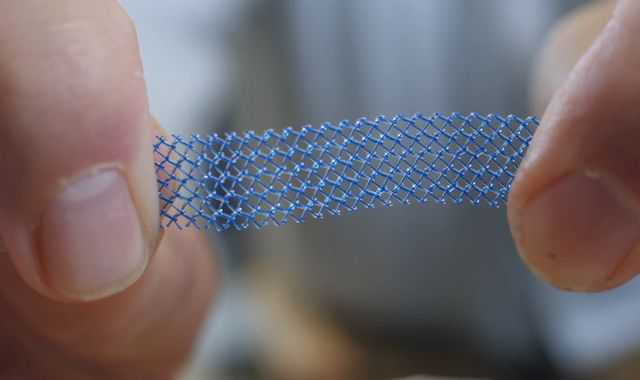‘Inadequate’ vaginal mesh regulations put women at risk, warn experts
Written by News on 07/12/2017
A group of medical experts have warned the regulation of vaginal mesh products is "inadequate" and devices have been brought to market without clinical trials.

Professor Carl Heneghan from Oxford University, who specialises in evidence-based medicine, has called for a patient registry to be set up to look at the long-term evidence of mesh complications.
The report, published in the British Medical Journal (BMJ), echoes the findings of a Sky News investigation in October which reported on how mesh had been used without trials and was causing harm to women on a scale bigger then Thalidomide.
The BMJ study looked at the regulation of vaginal mesh products in the US and was unable to scrutinise the approval process in Europe because of a "lack of accessibility".
Professor Heneghan and his team traced marketing clearance for 61 mesh devices and found they were based on equivalence to only two existing products that were approved in 1985 and 1996, despite important changes having been made to the models.
Their results show no evidence of clinical trial data at the time the device was approved.
:: Vaginal mesh campaigner Chrissy Brajcic dies from sepsis
The authors of the report argue "changes in design should have alerted regulators to important differences in the technological characteristics of the mesh that should have negated the use of equivalence".
"When evidence has been forthcoming, it has often emerged too late to inform clinical practice," they wrote.
"The current systems for ensuring patient safety are inadequate for medical devices.
"We think that clinical trials evidence should be mandatory for marketing authorisation of implantable devices."
In response to the increasing recognition of problems with mesh, many countries including Australia have reclassified them as high risk.
The UK watchdog NICE will soon publish new guidelines recommending transvaginal mesh should not be used to treat prolapse because of safety concerns.
Responding to the findings, the Medicines and Healthcare Products Regulatory Agency (MHRA) said that while they "recognise some women do develop serious complications… We also know many women gain benefit from these surgical procedures for what can be extremely debilitating conditions".
Earlier this year in an interview with Sky News the MHRA said: "There was no evidence from a regulatory point of view that mesh devices were inherently unsafe."
The MHRA insist the complication rate of vaginal mesh implants is between one and three percent.
That is despite latest NHS figures obtained by Sky News showing it to be at least 10%.
(c) Sky News 2017: ‘Inadequate’ vaginal mesh regulations put women at risk, warn experts





